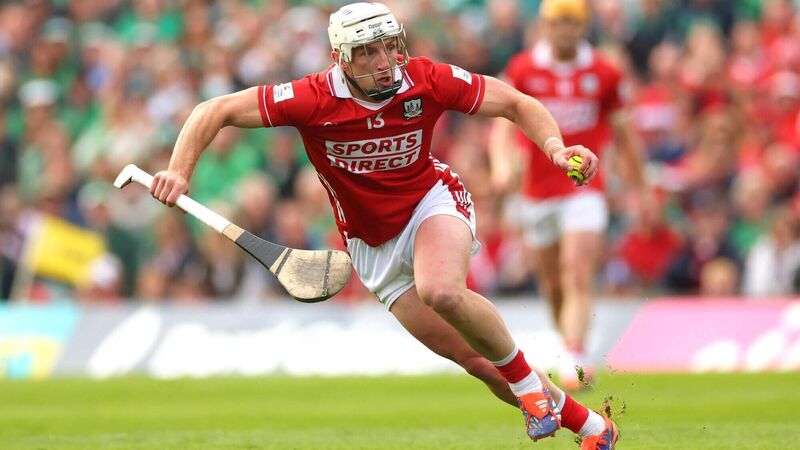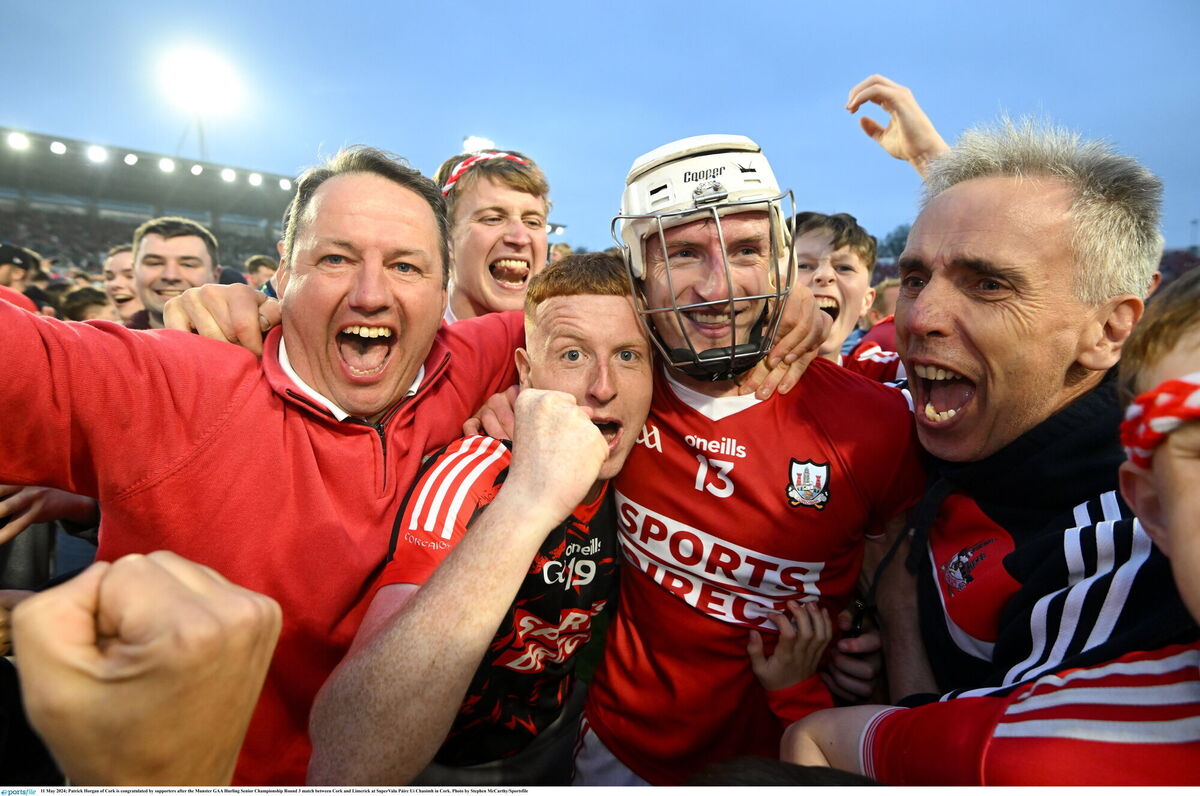Michael Moynihan: Patrick Horgan’s pitch presence was a privilege for people of Cork

Cork’s Patrick Horgan has retired from intercounty hurling after nearly two decades in the red and white jersey. Picture: James Crombie/ Inpho
Only one topic is suitable for discussion this morning, folks. Unless confined to a sensory deprivation tank bobbing up and down in the sea off Castletownbere, you must be aware of the news which rattled around Cork — and further afield — last Tuesday evening.
Patrick Horgan retired from intercounty hurling after nearly two decades in the red and white jersey of Cork, signing off with a brief, dignified statement wishing supporters, club colleagues, managers, and team-mates past and present the very best.
His departure has a significance that is well explored in the sports pages. His playing career with Cork and Glen Rovers was sprinkled with stunning displays and outrageous feats — touches, flicks, and scores to leave spectators, and occasionally defenders, dumbfounded.
A few years ago in Páirc Uí Chaoimh in a Munster championship game he collected a ball near the sideline and shot for goal. Never mind that it was a low-percentage shot over the shoulder, the kind of effort coaches preach against with fervour: it was never going anywhere but straight over the black spot.
One of the TV pundits said it was a typical Horgan point, and the other pundit agreed that it was typical, but added a small qualification: that it was one of the greatest points he’d ever seen. With the great ones the brilliance becomes typical. Contradictions ensue.
There are levels involved here. Surviving at intercounty level in hurling is a challenge: even good players admit to a bedding-in period, often crystallised by an early physical encounter that reinforces the sense of elite competition: senior hurling, as Seamus Brennan once said of another, though less testing, competition.
Patrick Horgan not only survived at those rarefied heights but scored more than any other player in the history of the game at that level, against some of the greatest players in the history of the game. He did it when the Munster championship was the jewel in the crown of the GAA, the most cut-throat competition in the calendar and a bear-pit occupied by closely-matched teams driven by ancient grudges, modern rivalries, and the fittest defenders ever.
Those games are the high holidays for thousands of people. Life events. Anyone who was lucky enough to be in Páirc Uí Chaoimh a couple of summers ago for Cork versus Limerick will agree. With a minute on the clock that evening Cork were going out of the championship only for Shane Kingston to knife through the Limerick defence and win a penalty.

Horgan hung that penalty in the roof of the net and the stadium exploded.
In an interview in these pages during the week he said people had come up to him since then eager to talk about that night — the heat, the drama, the goals, the pitch invasion, the walk up to the city, the places they went later in the evening.
A night like that takes all kinds of twists and turns when you’re already intoxicated from the experience, but the core experience remains the anchor for all those memories. For years to come Cork people will recall that night, and others which were created by Patrick Horgan and his team-mates.
Hurling goes deep in Cork. Back in 2013 yours truly was scratching around for something to fill a corner of the sports section ahead of that year’s All-Ireland final. It occurred to me that digging into the importance of hurling in Cork was an excavation worth pursuing.
The strength of hurling in the city is a little contradictory when you stand back and examine it coldly, after all. This was a sport sponsored by wealthy landowners in the 18th century, a game synonymous with the rich loamy fields of the Golden Vale.
How did it take root in urban streets with little space, going on to flourish for generations? There were pretty obvious explanations in the shape of the Christian Brothers’ commitment to the GAA, and the energy of clubs in the locality.
But I also leaned on a couple of writers to help with the digging, namely Theo Dorgan — whose father was one of the men who founded Na Piarsaigh — and Christy Kenneally, whose uncle was just Joe around the house but, as Joe Hartnett, was often Christy Ring’s adjutant in various disagreements with Tipperary.
The two of them pointed out the strength of local pride as a driver of the game’s popularity, which could mean ordinary folk, neighbours or relatives, essentially leading double lives — “people you knew who happened to be great sportsmen”, as Kenneally put it.
He expanded on that by sketching a city of neighbourhoods, where each of those neighbourhoods had local heroes whose feats were examined in detail: “These were fellas who worked with your uncle in Ford’s, or who knew your aunt from Dunlop’s ... on a Monday night after a championship game my father and grandfather and uncles would gather in my grandfather’s house and there’d be a huge discussion.
Dorgan agreed, pointing out how the precise parameters of the neighbourhoods involved were well known.
“We were on Redemption Road: Na Piarsaigh. You walked down Water Lane and at Madden’s Buildings you were in Glen territory. It was tribal, but because you knew the people involved, you were part of it. You were part of the story.”
Acknowledging how deep this runs should help anyone surprised by the depth of feeling in Cork at Patrick Horgan’s departure from the intercounty scene.
The strictly sporting context is one many will recognise anyway. The realisation that you won’t see one of your favourite players again is always a bitter one for supporters, irrespective of sporting allegiance or preference.
The departure of an acknowledged master adds another layer of regret again, someone whose proficiency goes beyond technique, who can combine efficiency with elegance.
On top of all that, the demands of hurling mean class is recognised across the board, irrespective of small loyalties — ‘great hands’ is the ultimate compliment that any hurler can receive, but if anything that seems an understatement when it comes to the man from Glen Rovers.
Speaking of ... the northsider in me can’t help but remember Theo Dorgan’s thoughts on those from foreign lands, or foreign-ish lands. (“As for someone from the Barrs ... anyone from south of the river was deeply suspect. You were looking for the cloven hoof, to be honest.”)
In the last couple of days I didn’t hear much of the derogatory name-calling southsiders and blow-ins sometimes indulge in, but perhaps that’s hypersensitivity on my part.
Focus on the matter at hand instead. In his farewell statement earlier this week Patrick Horgan said it was the privilege of his life to wear the red jersey and represent the people of Cork.
Small correction: The privilege was ours.






